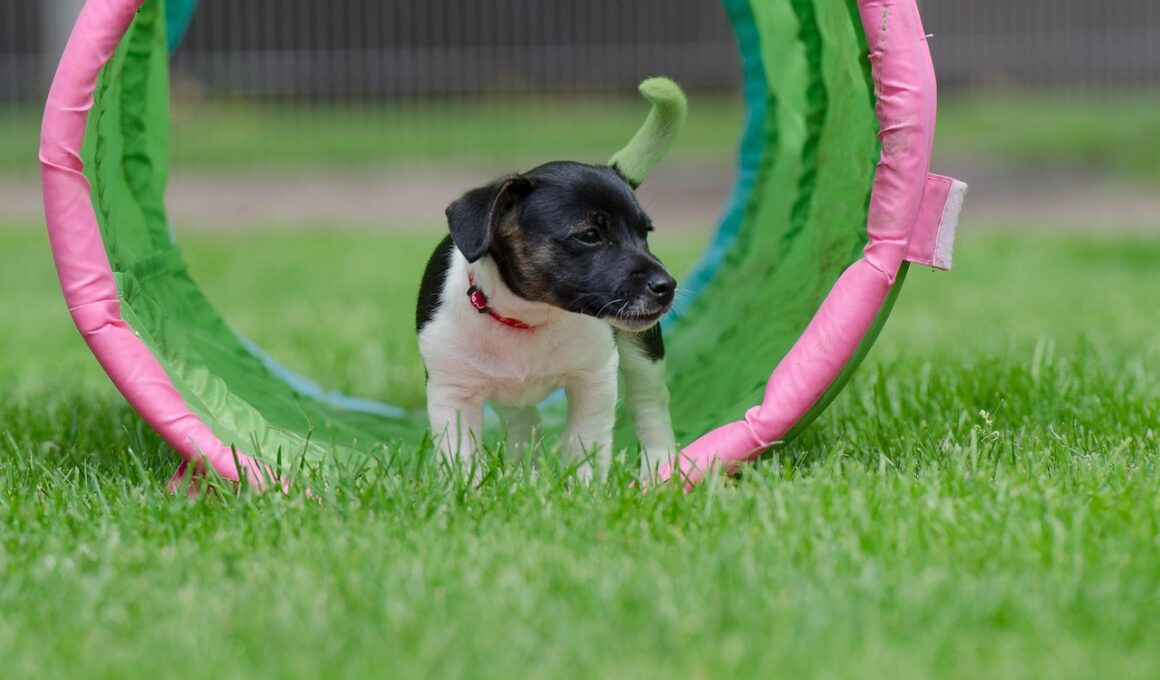Common Puppy Socialization Mistakes and How to Avoid Them
Puppy socialization is crucial for developing a well-rounded and confident adult dog. Many owners make common mistakes that can hinder their puppy’s ability to interact positively with other dogs and people. One frequent error is a lack of varied exposure during the critical socialization window, which generally occurs between 3 and 14 weeks of age. During this time, puppies are very receptive to new experiences. Without sufficient exposure to different environments, sounds, and people, they may become fearful or overly aggressive later in life. It’s essential to introduce your puppy to many different scenarios, including car rides, vet visits, and meet-ups with friendly dogs. Gradual and controlled exposure ensures that your puppy becomes positively acquainted with diverse situations. Owners might also neglect crucial obedience training alongside socialization activities. Basic commands like sit, stay, and come are vital for managing interactions safely. If neglected, the lack of training can lead to undesirable behaviors in social settings. Lastly, ensuring positive experiences during socialization is key; always reward good behavior and never force interactions that cause anxiety or fear, fostering a more secure puppy.
One significant mistake many puppy owners make is rushing the socialization process. Puppies thrive on gradual introductions to new experiences, and overwhelming them can lead to stress and fearfulness. Instead of cramming several new experiences into a single day, spread them out over weeks. Instead, plan short and manageable socialization sessions that end positively. Always watch your puppy’s body language; if they seem nervous or frightened, it is time to take a step back. Another common error is overlooking the importance of positive reinforcement methods. Many people mistakenly believe that harsh corrections or negative experiences will mitigate undesirable behaviors. In reality, positive reinforcement builds confidence and willingness to explore. Use treats, praise, and play to encourage your puppy when they engage positively with new people or situations. Additionally, puppy owners sometimes focus too narrowly on dog-to-dog interactions. While this is critical, it is equally important to socialize your puppy with people of various ages and appearances. Visits to pet-friendly stores, parks, and attending puppy classes can provide diverse interactions. By expanding their social network beyond just other dogs, puppies learn how to behave around different creatures, including humans, enhancing their overall behavior.
Understanding Fear-Based Reactions
Fear-based reactions in puppies can stem from improper socialization, and it is vital to recognize and address these fears early. When puppies exhibit fear towards certain stimuli, it can lead to aggressive behavior as a defense mechanism. Many owners mistakenly believe that exposing their fearful puppy to the object of their fear repeatedly will help desensitize them. However, this approach can backfire, causing the puppy to associate the experience with stress rather than safety. Instead, utilize gradual exposure to the feared object from a distance, rewarding calm behavior when they show curiosity rather than fear. It is equally important to identify the triggers causing these reactions. Recording observations during socialization sessions can help pinpoint situations that trigger fear. With this knowledge, owners can implement a controlled exposure plan, ensuring a supportive and positive environment for their puppy. Furthermore, providing a safe space at home where the puppy can retreat during overwhelming situations is essential. This safe area can be a crate, a designated room, or any quiet space where they feel secure. Ultimately, patience and understanding are key; building confidence takes time and consistent, positive experiences.
Socialization also encompasses exposure to various auditory stimuli, another area where many puppy owners make mistakes. Sudden loud noises can frighten puppies and lead to severe anxiety later in life. Therefore, it is essential to gradually acclimate them to common household sounds like vacuum cleaners, doorbells, and lawnmowers. Engaging in controlled exposure can help them become accustomed to these sounds while remaining in a comfortable environment. Playing sound recordings of different noises and pairing it with treats can facilitate this process. Don’t forget the significance of human interactions in socialization; exposing puppies to a broad range of individuals, including children, seniors, and those with differing physical characteristics, plays a critical role. Overlooking this aspect may lead to dogs that are either overly timid or excessively boisterous around people. Additionally, engaging in positive interactions at puppy playdates can help develop crucial social skills. Monitor playtime to ensure it remains enjoyable and safe during these meetings. If a conflict arises, intervene calmly to prevent fear or aggression from developing. Socializing your puppy effectively is an ongoing process that will contribute significantly to their happiness and success as they grow.
Recognizing Health Impacts on Socialization
Health problems can dramatically impact a puppy’s ability to socialize effectively. Many owners neglect to consider the physical discomfort that may be causing their puppy’s unwillingness to engage. Common issues like ear infections or gastrointestinal discomfort can lead to a lack of interest in social interactions. If your puppy appears overly shy or withdrawn, consult a veterinarian to rule out any underlying health concerns. Pain can influence behavior and make socialization challenging; addressing these health issues early can help pave the way for positive experiences later. Furthermore, ensuring up-to-date vaccinations is essential before exposing your puppy to other dogs, particularly in public spaces. Unvaccinated puppies are vulnerable to infectious diseases, and preemptive care can ensure their safety and well-being. Moreover, monitoring their mood during interactions is equally significant. If your puppy frequently displays fear or anxiety, seek guidance from a professional dog trainer or behaviorist. They can provide specific techniques tailored to your puppy’s needs, aiding in developing their social skills safely. Remember, a well-socialized puppy lays the groundwork for a healthier adult dog that thrives in various environments.
Another critical aspect often overlooked in puppy socialization is the owner’s attitude. Puppies are highly intuitive and can easily pick up on their owner’s anxiety or stress. If owners feel uneasy about social situations, it can inadvertently affect their puppy’s confidence and willingness to engage. Keeping a calm demeanor during introductions and interactions will encourage your puppy to relax and feel secure. Engaging in positive interactions will not only solidify your bond with your puppy but will also improve their social skills. Additionally, many owners underestimate the value of structured environments in fostering social skills. Enrolling in puppy training classes can provide a controlled yet social atmosphere for your puppy to meet new friends. These classes offer guidance on proper introductions and safe play interactions, simultaneously addressing obedience training. Furthermore, consider attending dog-friendly events or playgroups to give your puppy ample opportunities to interact in diverse settings. Owners often dismiss the importance of play style, focusing solely on size or breed compatibility. However, dogs that play too aggressively can overwhelm timid puppies. Therefore, monitoring play styles and ensuring equal playfulness fosters positive interactions for all puppies involved!
Conclusion and Continuous Learning
In conclusion, socialization is an ongoing journey that requires commitment and understanding from puppy owners. Avoiding common mistakes can significantly affect your puppy’s long-term behavior and overall happiness. As your puppy matures, continuous socialization and interaction remain vital; it does not simply end after the initial socialization period. Regular outings, positive reinforcement, and diverse experiences should continue throughout the dog’s life. Also, staying informed on new techniques and best practices within the puppy training community can enhance your socialization methods. Various resources, including dog training seminars, podcasts, and online forums, allow owners to exchange experiences and advice for continuous learning. Your efforts to ensure proper socialization will cultivate a well-adjusted and confident adult dog, enabling them to thrive in varying situations. Investing time and patience during the early stages goes a long way in ensuring a positive relationship between your dog and the world around them. Remember, every puppy is unique; understanding and catering to their individual needs will result in successful social skills development. Start today by implementing these tips and techniques to support your puppy’s growth and socialization throughout their life.
By understanding the common mistakes made in puppy socialization, you can take steps to enhance your puppy’s social skills development. Start your journey by implementing the strategies discussed to create positive experiences for your furry friend. Being proactive and patient will significantly contribute to their emotional and behavioral well-being.


